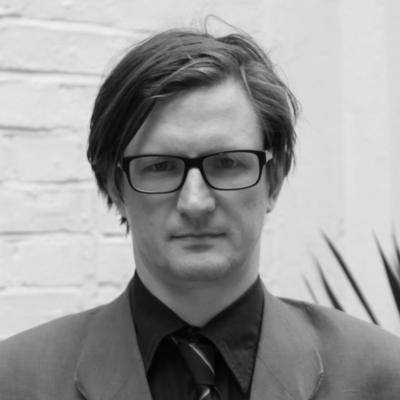Both Russian-led intervention and calls for Western sanctions demonstrate the transnational and kleptocratic aspects of Kazakhstan’s crisis of January 2022
On 5 January, following three days of protests which had spread across the country from the Western cities of Zhanaozen and Aktau, Kazakhstan’s president Kassym-Joomart Toqaev called on the Russian-led Collective Security Treaty Organization (CSTO) for help. That the CSTO agreed to launch its first-ever intervention is extraordinary given that all previous requests have been refused1. The Kyrgyz Republic, facing a popular rebellion in 2010, was ignored.
The difference is that the Kazakh protestors lacked an alternative but pro-Russian leader waiting in the wings and promising to restore the order. The rebellion was launched by those the post-Soviet autocrats fear most: their own people. Since its popular and largely peaceful beginnings in Kazakhstan’s west, the uprising became violent as state actors and criminal elements fought over control over the country’s largest city of Almaty. Very quickly, the conflict spread to the political elite and the capital as Toqaev sacked the former President Nursultan Nazarbaev (after whom the capital is named) from his position as head of the Security Council and his key allies from the security services and state companies2.
With the CSTO’s intervention it is tempting to take a geopolitical perspective on the crisis. But this tells us very little3. The unprecedented CSTO intervention was not about international security but regime security: defending the Kazakh government both from its citizens and from its own implosion in a war over the state. What Moscow and their authoritarian partners fear is the combination of elite fracture and popular uprising – what they stigmatise as “colored revolutions” which they claim (with little evidence) are backed by Western states4.
A better explanation is required. The evidence that the protests, which began over price hikes for Liquid Petroleum Gas (LPG), are the product of kleptocracy is now abundant5. Local protest groups complained of corruption in the state and its private sector partners in the mineral sectors6. They shouted Shal Ket (“Old Man Out!”) against former President Nazarbayev, his family and allies who still own much of the economy7. They demanded rises in child benefit and pensions for the poor in a country where the ruling elite have become millionaires and billionaires at the expense of the middle class8.
Similar complaints may easily be found in CSTO member states including Russia. The potential for diffusion to nearby states as in the coloured revolutions of the early-2000s and the Arab Spring of a decade ago is doubtless in the minds of the region’s autocrats. These are the kinds of crises that kleptocracies face.
But there is a second and more fundamental reason why Kazakhstan’s uprising is a global, indeed Western, affair. The demands of the country’s streets voice anger built up over three decades where the country has not only gone from a Soviet republic to a family kleptocracy, but its elite are fully globalized. Wealth that may have been used for welfare and job creation, has flown out of the country to real estate in, amongst others, the UK, US, Czech Republic, France, Spain, and Switzerland. Monies accrued from the exploitation of Kazakhstan’s natural resources was used to fund lavish parties, manage their reputations in the West, and fund private intelligence operations against their political rivals who had fled into exile9.
A report written by this project’s team and released in December by Chatham House10 highlighted how £530 million of property in the UK is held by the Kazakh elite, including over £300 million owned by members of the former president’s family. Three of these properties owned by Dariga Nazarbayeva – the eldest daughter of the former president – and her son, including a £30 million luxury apartment in Chelsea, were subject to Unexplained Wealth Orders (UWO) in 2019. This new legislative tool aims to form the investigative basis of the freezing of properties held by overseas politicians if they fail to produce evidence on their sources of their wealth. However, the orders were dismissed by the High Court in part because Dariga’s lawyers, Mishcon de Reya, appealed to a ruling from the Kazakh prosecutor’s office that said that all of the assets that Dariga had sold to fund the purchase of the properties were not derived from the proceeds of crime.
The verdict was particularly galling for anti-corruption campaigners: UWOs were introduced to address both the lack of availability and the unreliability of evidence from kleptocracies, and yet in one of the first investigations, a UK High Court judge ruled that such evidence was admissible. The case appears to affirm the UK National Crime Agency’s own prediction that it is was very likely that “the oligarchy will have the financial means to ensure their lawyers – a key group of professional enablers – find ways to circumvent this legislation11.” It is little wonder that no UWO has apparently been issued since July 2019.
The UK is arguably the world leader in providing financial services to members of corrupt elites who look to launder both their money and reputations into this country. Our anti-money laundering regime relies on the due diligence that real estate agents and solicitors perform on their own clients. Evidence suggests that the system is not working. Just recently, Mishcon de Reya agreed to pay £232,500 – one of the biggest fines ever imposed by the Solicitors Regulation Authority – over breaches relating to money laundering rules, after the company admitted failing to secure adequate due diligence on four related clients and misplacing the evidence of diligence it had carried out12.
If we cannot rely on these so-called ‘gatekeepers’ to turn away money of dubious origin, the UK government has to introduce new measures. The Global Anti-Corruption (GAC) sanctions regime, established in April 2021, allows the UK government to impose sanctions in response to serious corruption around the world. The events in Kazakhstan provide an excellent opportunity to put this new legislation into use by sanctioning members of the Kazakh elite who have looted their country13. With over 200 dead in Kazakhstan, a failure to act would set a worrying precedent: that the UK does not understand its own complicity in such corruption and has little interest in trying to address it.
- https://thediplomat.com/2022/01/csto-deploys-to-kazakhstan-at-tokayevs-request/
- https://www.reuters.com/world/asia-pacific/kazakh-ex-leaders-nephew-sacked-deputy-state-security-chief-2022-01-17/
- https://www.vox.com/2022/1/8/22872642/kazakhstan-protests-russia-troops-putin
- https://www.ft.com/content/ee9005ee-7269-4081-801a-61011b233e78
- https://www.ft.com/content/a1633129-2dc4-428e-96fa-5d52fd714a00?shareType=nongift
- https://twitter.com/zhapisheva/status/1478601976279711745
- https://www.opendemocracy.net/en/odr/-kazakhstan-burns-elites-wealth-safe-in-london/?utm_source=tw
- https://www.washingtonpost.com/politics/2022/01/07/kazakhstans-leaders-promised-middle-class-comfort-then-they-raised-prices/?tid=ss_tw
- https://www.theguardian.com/world/2022/jan/08/how-the-kazakh-elite-put-its-wealth-into-uk-property
- https://www.chathamhouse.org/2021/12/uks-kleptocracy-problem
- Intelligence and Security Committee of Parliament, Russia Report, p.16
- https://www.lawgazette.co.uk/news/mishcon-de-reya-fined-232500-over-numerous-aml-failings/5111049.article
- https://www.theguardian.com/uk-news/2022/jan/12/leading-campaigner-urges-uk-to-target-wealth-of-kazakhstani-elite?CMP=Share_iOSApp_Other

John Heathershaw is an associate professor and director of impact at University of Exeter. His research addresses conflict and security in authoritarian political environments, especially in post-Soviet Central Asia. It considers how and how effectively conflict is managed in authoritarian states. Heathershaw convenes the Exeter Central Asian Studies (ExCAS) research network and directs its Central Asian Political Exiles (CAPE) project. Heathershaw completed his Ph.D. at the Department of International Relations at the London School of Economics and Political Science in 2007.


